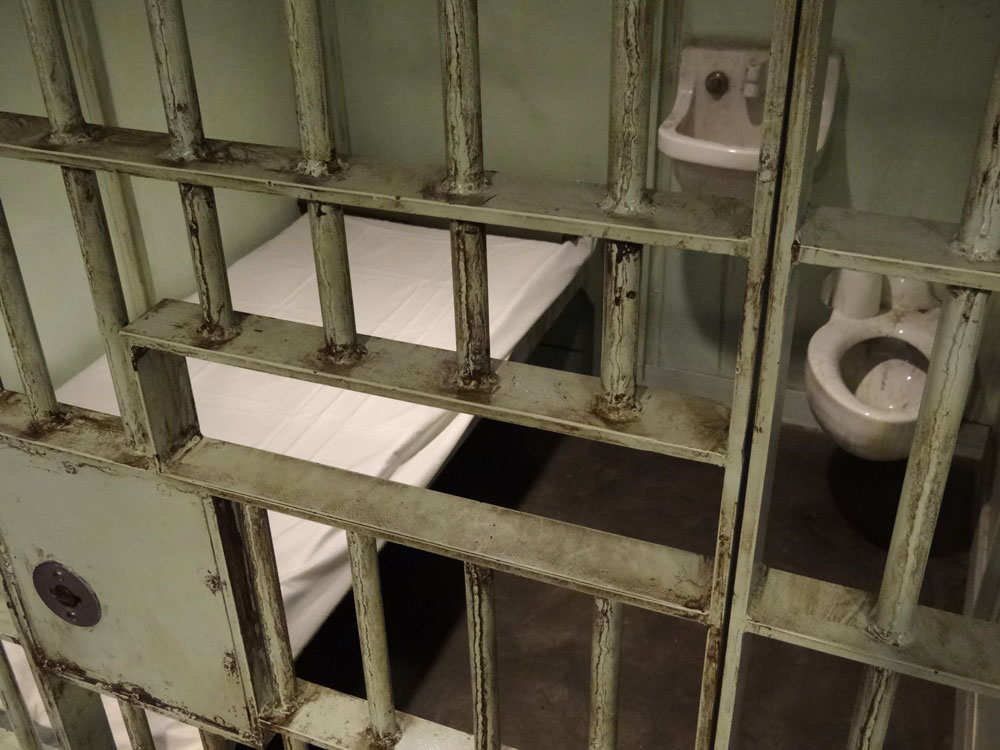
December 17, 2019; Marshall Project
A 2014 paper from the Hamilton Project, a program of the Brookings Institution, estimated that as of 2010, the US spent $80 billion a year to keep roughly 2.3 million people behind bars.
“Many experts say that figure is a gross underestimate, though, because it leaves out myriad hidden costs that are often borne by prisoners and their loved ones,” write Nicole Lewis and Beatrix Lockwood for the Marshall Project. The Prison Policy project calculates that the total prison system and support costs at $182 billion. The Hamilton Project itself estimates that if policing costs are also included, the annual cost (again, in 2010 dollars) would be $261 billion.
Most of the money spent on the criminal justice system is spent by state entities. But not all. As Lewis and Lockwood observe, “National data is rarely gathered on how much prisoners’ families pay into the corrections system.” So, to address that, the Marshall Project persuaded nearly 200 people to document their spending for loved ones in prison.
Lewis and Lockwood found that many families “shell out hundreds of dollars each month to feed, clothe and stay connected to someone behind bars, paying for health care, personal hygiene items, and phone calls and other forms of communication.” They add that for some family members of prisoners, phone and email charges alone can run thousands of dollars a year, detailing one case where, in a single year, the bill came to $2,161 on commissary items, $3,586 in phone charges, and $419 for emails sent through the prison’s email system.
Connie Martin, 50, wrote to the Marshall Project from Hazel Park, Michigan. “I think the biggest misconception that people have about prison is that ‘the state’ pays for everything. No one realizes that it’s the friends and families of loved ones that pay.”
Sign up for our free newsletters
Subscribe to NPQ's newsletters to have our top stories delivered directly to your inbox.
By signing up, you agree to our privacy policy and terms of use, and to receive messages from NPQ and our partners.
And the trend is getting worse. As Lewis and Lockwood detail, “In many facilities, basic items are sold by private vendors, often with substantial markups or added service fees. Over the years, the cost to families has increased as prisons and jails across the country increasingly outsource many of the basic functions of running a correctional facility to private companies.”
This trend of public prisons using private company vendors has accelerated since the 2008 recession, as state legislatures have sought to rein in rising cost incarceration costs, according to Hadar Aviram, a professor at the University of California, Hastings College of the Law. “Public prisons are public only by name,” she explains. “These days, you pay for everything in prison.”
Prison officials at public facilities claim that the switch to private vendors makes prisons more secure and prevents contraband from being smuggled in. The effect for families, however, as Lewis and Lockwood explain, is that many are “now paying more for the same goods they used to be able to purchase on their own.” All told, the nonprofit Prison Policy Initiative estimates “families spend $2.9 billion a year on commissary accounts and phone calls.
And then there are other costs. Lewis and Lockwood also point out, “Families are also often responsible for paying court fees, restitution, and fines when a member goes to prison. According to a 2015 report by the Ella Baker Center for Human Rights, the average family paid roughly $13,000 in fines and fees.”
Conditions vary by state. Jennifer Erschabek, executive director of the Texas Inmate Families Association, says she considers the money that family members pay an additional tax. A silver lining: Texas recently reduced the cost of telephone calls with prisoners to six cents a minute, from 23 cents, by negotiating a better deal with the provider.
Still, Lewis and Lockwood observe, in “states where the rates are still exorbitant, it is perilously easy to binge on expensive services to stay in touch. Prisoner family members try to avoid these costs by trading tips for saving money.” They add, “Whatever their workarounds, family members said the strain of finding the money to stay in touch and ease the burdens of incarceration exacts a continual emotional toll.”—Steve Dubb












